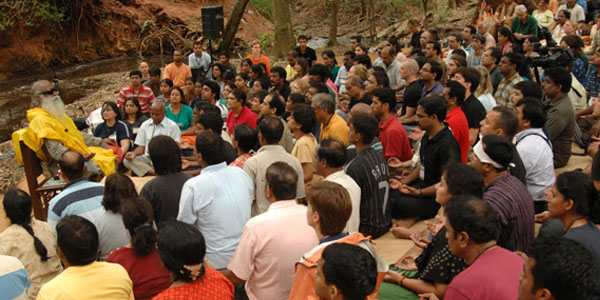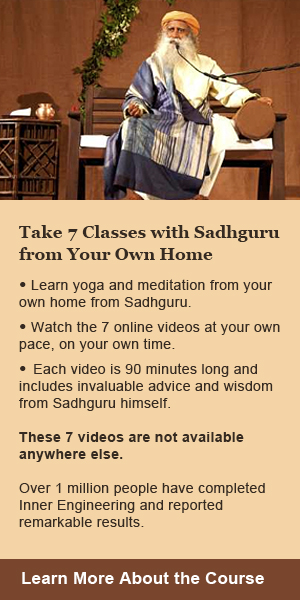Mahabharat Episode 55: The Age-Old Caste System – Discrimination from the Start

“We need to provide equal opportunity, not equality.”
—Sadhguru
Questioner: Sadhguru, earlier, there were separate categories for different people, such as Brahmins and Kshatriyas, but in modern times, this system has been abolished. Is it still appropriate or possible today to go by the Manu Dharma that was followed in the Mahabharat period?
Sadhguru: The old caste system has broken down today but there is a new kind of caste system. Today the world is driven by the economic engine – money determines what class or “caste” you belong to. When Marx talked about the proletariat and bourgeoisie, he described a kind of caste system. Because the world is driven by the economic engine today, everything is dictated by economics.
No one ascribes to any other philosophy or ideology in the world anymore. People are talking about economics as if it is a philosophy. How to count your money has become the philosophy of life. You can see how the discourse in the newspapers, in magazines, and on television has changed in the last ten or fifteen years in the world: there is no talk about anything other than economics. This is the capitalistic way of living. It looks like it brings prosperity, and it definitely does in the beginning, but if we do not temper it, we are heading for disaster.
At one point, Krishna speaks about the Kshatriyas, saying that you have to either transform them or put an end to their clan. He says that Mother Earth is like a cow, which gives life. He compares her to a cow because he hails from a pastoral society, where the harbinger of life is the cow. If you have a cow in your house, your children will not die – this was the simple wisdom of those days. He said that the Kshatriyas were squeezing the cow’s udder to a point where it was hurting the cow.
All these things are completely gone now. Suppose you lived in a village twenty-five years ago. If someone wanted to milk the cow, first he would let the calf drink something. Then he would milk the cow, and in the end, he left some milk for the calf, so that it could again go and drink after the milking was over. Today, you have a machine that sucks everything out of the cow. And if the calf is male, it is killed instantly; if it is female, it is raised somewhere else. We are definitely milking the cow to the extent that it hurts not just the cow but Mother Earth too.
Krishna spoke like an environmentalist five thousand years ago. He said, “They are milking it too hard. If they get the opportunity, they would like to have more and more. Either we must transform them and they should turn spiritual, or they must be killed.” Right now, we cannot propound a philosophy like that, but that is what will happen, eventually.
Either you transform yourself or you will be killed – not by a Krishna, by nature. It is not a question of some kind of punishment for you; it is just a course correction. Either you do it consciously, or it will be done to you in a cruel manner. It is invariably going to happen to humanity. We must either make the course correction consciously, or it will be done to us cruelly. At that time, Krishna decided to first try and transform them. If that does not work, then do the cruel thing, which is what happened at Kurukshetra.
Is the varnashrama dharma of dividing a society based on craft or competence still there? Is the world not divided by competence? Whether you like it or not, it is divided. The only thing is we have made it a little more porous. Even at that time, Duryodhana stood up and said, “A man can become a king in three different ways. It need not be by birth.” And both Vyasa and Krishna kept saying that a Brahmana is not a Brahmana because of his birth, but because of his knowledge.
Even today, if you go by this standard, aren’t there Brahmanas, Kshatriyas, Vaishyas, and Shudras in the world? This is another way to look at the caste system. If your sense of responsibility is only to your individual person and no one else, that you are only interested in your wellbeing, then we call you a Shudra. If you are interested in yourself, your family and your community, then we say you are a Vaishya. If you are interested in the wellbeing of your nation, then we say you are a Kshatriya. If you are interested in the wellbeing of all life upon this planet, then we say you are a Brahmana. That is how the society was divided.
This division was made for convenience and for effective usage of human talent. But over a period of time, every difference transforms into discrimination and becomes ugly. You cannot eliminate the caste system. If you eliminate one kind of caste system, it will come up in another way. We need to provide equal opportunity, not equality. Equality means to decimate the world into one module, which would be the worst crime you could commit on humanity. Two human beings will never be equal, and they cannot be equal in the very nature of things. But every human being should have equal opportunity.
To be continued..
Editor's Note: A version of this article was originally published in the Forest Flower magazine, January 2019. To subscribe online, click here. The Mahabharat series is based on Sadhguru’s talks during the one-time Mahabharat program that took place in February 2012 at the Isha Yoga Center. Through the lives and stories of the varied characters, Sadhguru takes us on a mystical exploration into the wisdom of this immortal saga.


